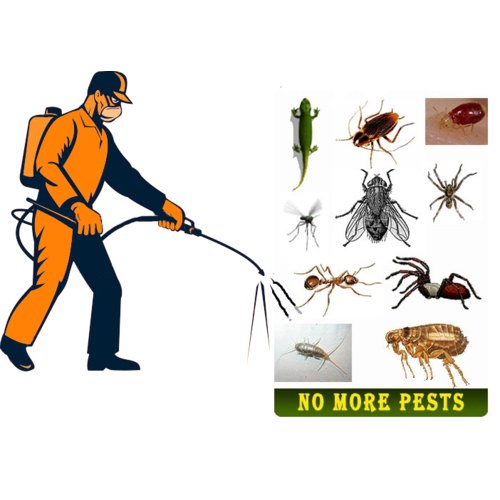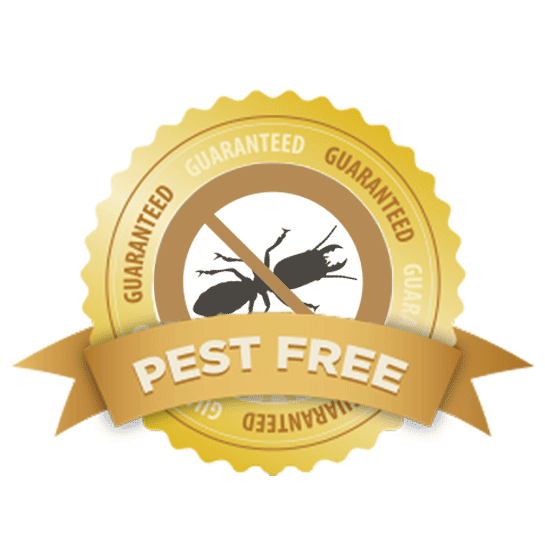Professional Wasp Control Coquitlam: Safe and Efficient Pest Removal
Professional Wasp Control Coquitlam: Safe and Efficient Pest Removal
Blog Article
Safe and Reputable Insect Control for Lasting Security
The relevance of trustworthy and secure parasite control can not be overstated, particularly in a period where environmental issues are vital. Effective pest monitoring calls for a complex strategy that balances ecological honesty with the need for reliable insect reductions. By discovering green remedies and incorporated bug monitoring techniques, home owners can achieve long-term protection against invasive species while safeguarding beneficial ecological communities. However, the subtleties of these methods may not be quickly clear, triggering a closer examination of the practices that can result in lasting pest control results. What actions can be taken to ensure both safety and efficacy in bug management?
Comprehending Parasite Control Approaches
Bug control includes a variety of approaches targeted at managing and removing unwanted bugs and rodents that can intimidate both health and wellness and building. Understanding these approaches is critical for effective pest management.
The primary categories of parasite control approaches include mechanical, biological, and chemical approaches. Mechanical methods entail physical obstacles and traps to avoid parasite entrance and capture undesirable species. Making use of screens on windows or employing sticky traps can dramatically reduce pest populations without introducing hazardous materials - exterminator coquitlam.

Chemical insect control is typically the most identified technique, utilizing pesticides to remove parasites. These chemicals can be reliable however need to be utilized with caution to prevent adverse effects on non-target varieties and the atmosphere.
Advantages of Eco-Friendly Solutions
How can environment-friendly services change parasite control practices? The fostering of environmentally friendly pest control techniques uses various benefits, considerably improving the effectiveness and safety and security of parasite administration.

An additional benefit is the favorable influence on local biodiversity. Environment-friendly options are developed to target specific pests while preserving beneficial pests and wildlife, promoting a balanced ecological community. This strategy lines up with the growing consumer demand for sustainable practices, enhancing the credibility of pest control service providers.
Integrated Bug Monitoring Techniques
The execution of green remedies naturally results in the adoption of Integrated Pest Monitoring (IPM) approaches, which additionally improve insect control efficiency. IPM is an all natural technique that combines numerous techniques to manage pest populaces while minimizing ecological effect. This method stresses making use of organic, cultural, mechanical, and chemical controls, making sure a lasting and balanced method of bug management.
One fundamental element of IPM is the comprehensive assessment of insect task and ecological problems. By monitoring insect populations and determining their life cycles, professionals can apply targeted treatments that interrupt the parasite's habitat or lifecycle, reducing reliance on chemical pesticides. Additionally, cultural methods such as crop turning and habitat adjustment can significantly lessen bug facility and recreation.
An additional critical element is making use of organic control representatives, such as beneficial pests or microbes, which can naturally reduce bug populations. When chemical applications are necessary, IPM prioritizes the use of low-risk chemicals and applies them selectively, decreasing direct exposure to non-target organisms and people.
Integrating IPM strategies not only enhances bug control effectiveness but also advertises a much visit site safer ecological community, aligning with the expanding demand for sustainable techniques in bug monitoring.
Safe Practices for Homeowners
Comprehending the importance of secure techniques in insect control can empower property owners to successfully manage bug concerns while guarding their health and the atmosphere. Applying non-toxic approaches and preventative steps is important in reducing direct exposure to harmful chemicals.
Homeowners should first assess their environment for problems that bring in parasites, such as standing clutter, food, and water waste. Consistently cleaning and securing entry points can prevent parasites from invading the home. Making use of natural deterrents, such as essential oils or diatomaceous earth, can supply effective alternatives to chemical pesticides.
When chemical therapies are required, homeowners need to choose products that are specifically classified as secure for residential use. It is important to comply with application guidelines thoroughly to avoid overexposure. In addition, making use of targeted therapies in locations where parasites are determined, as opposed to blanket spraying, can considerably lower chemical usage.
Lastly, maintaining open communication with pest control professionals is essential. Property owners should ask about the safety of products made use of and demand eco-friendly choices whenever possible. By taking on these secure practices, property owners can produce a much healthier living environment while properly handling pest problems.

Tips for Long-Term Security
Establishing an insect monitoring method that emphasizes lasting defense can considerably improve the helpful resources effectiveness of the safe methods previously gone over. To achieve this, property owners ought to execute normal evaluations of their property, concentrating on concealed locations such as attic rooms, cellars, and crawl rooms. Early discovery of parasite activity is essential in avoiding problems from taking hold.
Furthermore, keeping a tidy setting is crucial. This includes appropriate food storage, without delay cleaning up spills, and consistently dealing with rubbish. These methods decrease attractants that attract insects into the home. Sealing entrance factors, such as fractures around windows and doors, can successfully obstruct prospective bug accessibility.
Landscape design must additionally be taken into consideration; maintaining plants trimmed and preserving a distance between plant life and the home reduces concealing areas for parasites. Utilizing natural deterrents, such as published here essential oils or diatomaceous earth, can further inhibit problems without turning to harsh chemicals.
Lastly, collaborating with a specialist bug control service for periodic evaluations can give an extra layer of safety. These experts can use customized referrals and advanced therapies, ensuring that your home continues to be shielded versus pests in the lengthy term.
Conclusion
Finally, dependable and risk-free bug control requires a multifaceted strategy that highlights eco-friendly approaches and integrated parasite administration. By applying natural deterrents, conducting normal examinations, and maintaining proper sanitation, homeowner can dramatically reduce pest populations while shielding valuable pests and the environment. Partnership with specialist insect control solutions enhances the efficiency of these methods, making sure tailored remedies that give lasting defense and comfort versus future infestations.
Efficient bug management needs a diverse strategy that stabilizes eco-friendly integrity with the need for effective insect suppression. The fostering of green pest control approaches uses many advantages, substantially improving the efficiency and safety of bug management.The implementation of environment-friendly solutions naturally leads to the fostering of Integrated Pest Monitoring (IPM) techniques, which additionally improve bug control effectiveness. exterminator coquitlam. By monitoring parasite populaces and determining their life cycles, experts can execute targeted treatments that interrupt the insect's environment or lifecycle, reducing dependence on chemical pesticides.In final thought, reliable and secure pest control calls for a multifaceted approach that highlights environment-friendly methods and incorporated pest management
Report this page